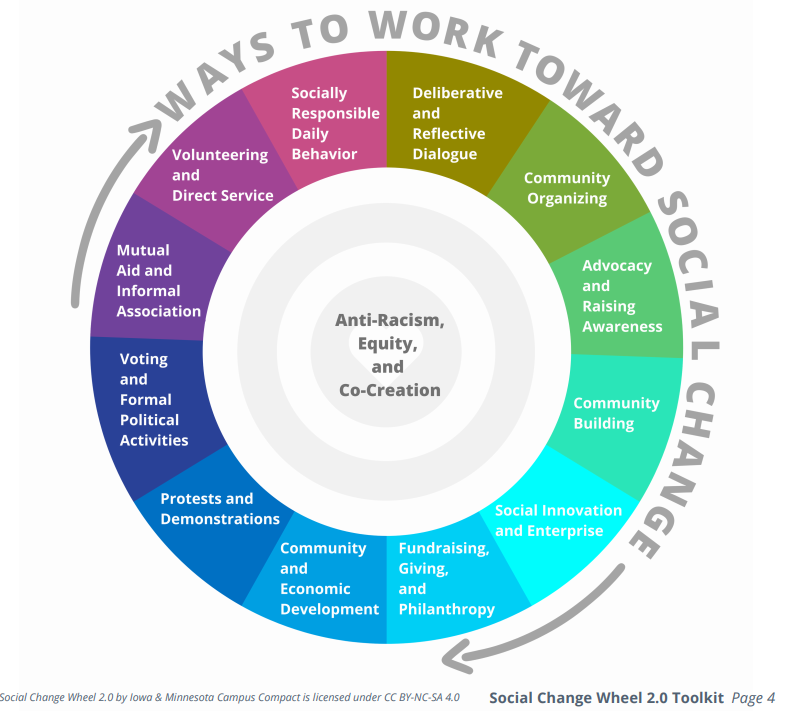Civic learning and democratic engagement
When we think of civic engagement as a part of college, many of us may think of service learning, voter registration drives, or fundraising. However, civic engagement strategies to make social change can take many forms in the academic, personal, and professional lives of students, faculty and staff. What makes civic engagement experiences educationally meaningful?
Defining civic learning and democratic civic engagement

Civic learning is not the same as service-learning. While service-learning refers to a way of teaching and learning, civic learning refers to a meta-category of learning that includes: "knowledge (e.g., historical, political, and civic knowledge that arises from both academic and community sources); skills (e.g., critical thinking communication, quantitative reasoning, public problem solving, civic judgment, civic imagination and creativity, collective action, coalition building, organizational analysis; and values (e.g., justice, inclusion, and full participation) (Saltmarsh 2005). Through developing our civic faculties, we cultivate our individual capacities to be active members of society; in addition, we develop an expanded notion of "we, the people" and the social commitments that binds us together to work toward human thriving locally and globally.
The following are some introductory resources to integrate civic learning into your courses and programs. Questions? Contact csl@iu.edu.

